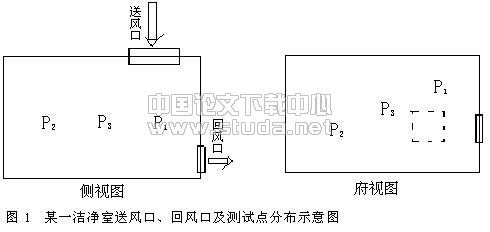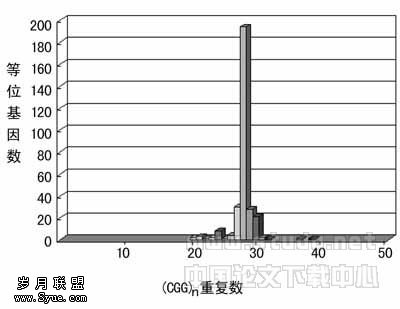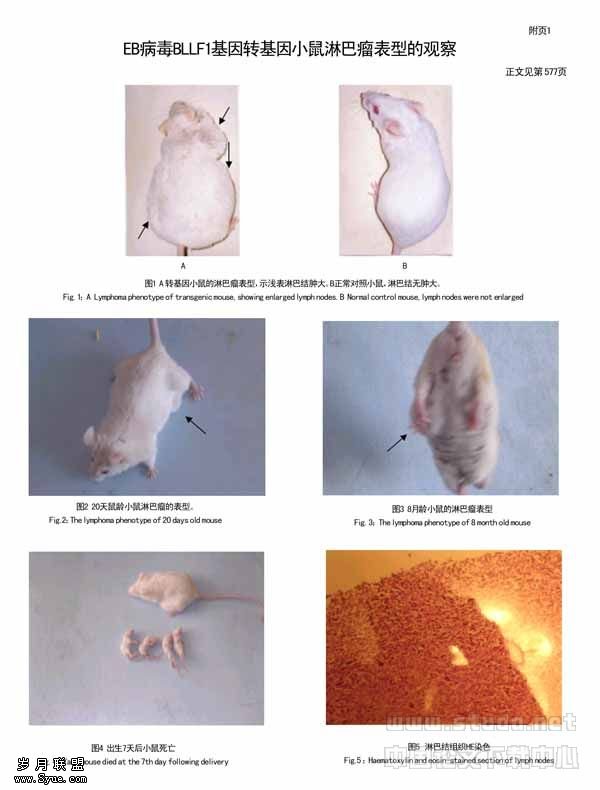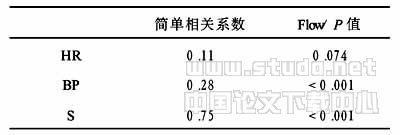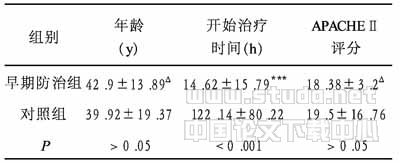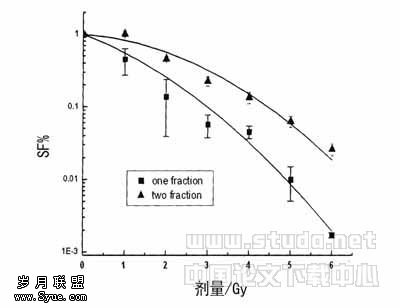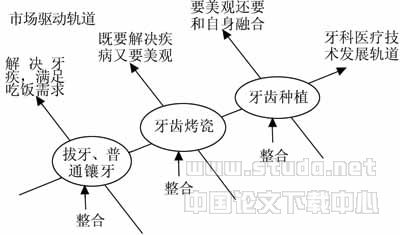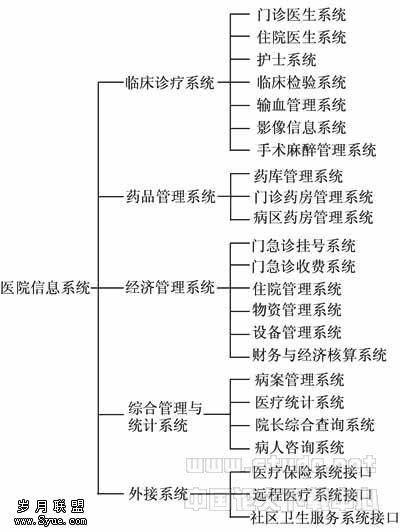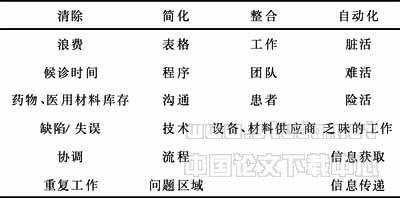Early Intervention with Epoetin Alfa During Platinum-Based C
作者:Jorine H. Savonijea, Cees J. van Groeningena, Lars W. Wormhoudtb, Guiseppe Giacconea
【关键词】 Epoetin,alfa,•,Anemia,•,Hemoglobin,•,Cancer,•,Quality,of,life
LEARNING OBJECTIVES
After completing this course, the reader will be able to:
Describe the implications of untreated anemia and the benefits of anemia prevention/early correction in patients with cancer receiving chemotherapy.
Discuss the effect of initial Hb level on the results of a prospective, randomized study in which cancer patients with baseline Hb levels 12.1 g/dl received epoetin alfa or best supportive care.
Explain that the positive effects of early intervention with epoetin alfa on the transfusion rate, hematopoietic response, and quality of life in patients with chemotherapy-related anemia occur regardless of baseline Hb level, and that treating patients to a Hb value of 12.0 g/dl is clinically appropriate to optimize quality-of-life outcomes.
The CME activity for this article consists of material from both "Early Intervention with Epoetin Alfa During Platinum-Based Chemotherapy: An Analysis of the Results of a Multicenter, Randomized, Controlled Trial Based on Initial Hemoglobin Levels" and "Early Intervention with Epoetin Alfa During Platinum-Based Chemotherapy: An Analysis of Quality-of-Life Results of a Multicenter, Randomized, Controlled Trial Compared with Population Normative Data."
ABSTRACT
Objective. This analysis of the results of a randomized, controlled trial evaluating the effects of epoetin alfa (EPO) therapy on transfusion requirements, hemoglobin (Hb), and quality of life (QOL) in patients with cancer receiving platinum-based chemotherapy was conducted to evaluate the effect of initial Hb level on study outcomes.
Methods. Patients with Hb levels 12.1 g/dl were randomized 2:1 to receive EPO, 10,000 U three times weekly s.c. or best supportive care (BSC) until 4 weeks after their last chemotherapy cycle. For this analysis, patients were stratified by baseline Hb level (9.7 g/dl, >9.7 g/dl to 10.5 g/dl, >10.5 g/dl to 11.3 g/ dl, and >11.3 g/dl to 12.1 g/dl), and study results were reanalyzed.
Results. Significantly fewer EPO patients than BSC patients with initial Hb levels >9.7 g/dl to 12.1 g/dl required transfusions. EPO maintained Hb levels throughout the study for patients with Hb levels >11.3 g/dl to 12.1 g/dl, compared with a decrease with BSC. For patients with baseline Hb levels >10.5 g/dl, for whom the mean changes from baseline to last assessment were measured by the Cancer Linear Analogue Scale assessments of energy and overall QOL as well as by the Functional Assessment of Cancer Therapy (FACT)-Fatigue and FACT-An Anemia subscale, QOL scores were significantly greater with EPO than with BSC. QOL declined in patients receiving BSC, and the mean decreases in QOL scores were greater for BSC patients with baseline Hb levels >10.5 g/dl, compared with the overall BSC group.
Conclusion. In patients with cancer receiving platinum-based chemotherapy and with baseline Hb levels >10.5 g/dl, early intervention with EPO reduces transfusions, maintains Hb level, and maintains or improves QOL. This study supports the positive effects of early intervention when analyzed according to initial Hb value.
INTRODUCTION
Anemia commonly occurs in patients with cancer receiving chemotherapy and leads to impaired quality of life (QOL) [1, 2]. Erythropoietic agents such as epoetin alfa are well-established treatment options for patients with chemotherapy-related anemia. In randomized, placebo-controlled clinical trials as well as large community-based studies of patients with cancer and anemia receiving platinum- or nonplatinum-based chemotherapy, epoetin alfa has been shown to significantly increase hemoglobin (Hb), decrease transfusion requirements, and ameliorate symptoms that negatively affect QOL (e.g., fatigue) [35]. The QOL benefits linked to epoetin alfa therapy are clinically important [2, 6] and significantly correlated with increased Hb level [3, 79], even after accounting for the effects of disease progression and other potential confounding factors [10].
Traditionally, anemia treatment has been delayed until Hb decreases to <10.0 g/dl and may even be withheld until Hb decreases to <9.0 g/dl [1113]. In the European Cancer Anaemia Survey (ECAS), only 38.9% of anemic patients with cancer received anemia treatment [11]. Further, treatment was not initiated until mean Hb decreased to 9.7 g/dl [11]. Current guidelines published jointly by the American Society of Clinical Oncology and the American Society of Hematology recommend epoetin therapy for patients with Hb levels <10.0 g/dl but state that treatment of mild-to-moderate anemia (Hb 10.0 g/dl but <12.0 g/dl) should depend on clinical circumstances [14]. Similar guidelines have been published by the U.S. National Comprehensive Cancer Network in which anemia treatment is recommended for patients with Hb levels <11.0 g/dl [15]. The results of several studies suggest that early intervention with epoetin alfa (i.e., in patients with baseline Hb levels 12.0 g/dl) may prevent the development of moderate or severe anemia in cancer patients receiving chemotherapy by maintaining near-normal Hb levels and may also prevent or ameliorate fatigue and other symptoms that adversely affect QOL [1618].
A previously published multicenter, randomized study was conducted to investigate the effects of epoetin alfa therapy in patients with baseline Hb levels 12.1 g/dl [19]. The subset analysis of this study described here was conducted to evaluate the effect of baseline Hb level on transfusion requirements, subsequent Hb levels, and QOL, and to compare these results with the overall results of the primary study.
METHODS
Patients
The methodological details of the original study have been published previously [19]. Briefly, men and women at least 18 years of age who had an Eastern Cooperative Oncology Group (ECOG) performance status score of 03, a confirmed diagnosis of solid malignancy that required platinum-based chemotherapy, and a baseline Hb level 12.1 g/dl were eligible to participate. Patients also had to have been able to understand and complete QOL questionnaires in Dutch. Patients were excluded if they had therapy-resistant hypertension; clinically significant dysfunction of any organ system not attributable to malignancy or chemotherapy; a history of seizures; relevant acute or chronic bleeding; or evidence of untreated iron, folate, or vitamin B12 deficiencies.
Study Design
This prospective, open-label, randomized, multicenter study enrolled patients from November 1999 to December 2002 at 15 hospitals in The Netherlands. Randomization was performed centrally. The design and conduct of the study complied with the ethical principles of good clinical practice, in accordance with the Declaration of Helsinki and local legal requirements. The study was approved by an independent centralized ethics committee (Medisch-Ethische Toetsing Onderzoele Patiënten en Proefpersonen, Tilburg, The Netherlands) and by the independent local ethics committee in each participating hospital.
Patients were randomized in a 2:1 ratio to receive either epoetin alfa (Eprex®; Ortho Biotech/Janssen-Cilag, High Wycombe, United Kingdom; [also marketed in the U.S. as Procrit®; Ortho Biotech Products, L.P., Bridgewater, NJ]) or best supportive care (BSC). Oral iron supplements (200 mg elemental iron/day) were recommended during the study period if baseline transferrin saturation was <20% and/or serum ferritin was <100 µg/l. The study protocol specified that transfusions should only be administered to patients with significant complaints of anemia and that every effort should be made not to transfuse at Hb levels 9.7 g/dl to minimize differences in transfusion policies among study sites.
Treatment
Epoetin alfa was initiated at 10,000U s.c. three times weekly (TIW) for 4 weeks. After 4 weeks, if Hb had increased by 1.0 g/dl from baseline or Hb was 12.1 g/dl, epoetin alfa was continued at the original dose. If the Hb increase was <1.0 g/dl from baseline and Hb was <12.1 g/dl, the epoetin alfa dose was increased to 20,000 U TIW. After another 4 weeks following a dose increase to 20,000 U TIW, if Hb had increased by <1.0 g/dl from baseline and Hb was still <12.1 g/dl, epoetin alfa was discontinued, although these patients remained in the study and were included in the analysis. If a patient had an Hb level >14.0 g/dl at any time during the study, epoetin alfa therapy was discontinued until the Hb level decreased to <13.0 g/dl. Epoetin alfa was then reinitiated at a dose of 10,000 U twice weekly. The epoetin alfa dose was also decreased to 10,000 U twice weekly if Hb increased by >2.0 g/dl in any 4-week period.
Efficacy and Safety Assessments
The primary efficacy measure for the overall study was the proportion of patients requiring transfusions during the treatment phase (i.e., up to 4 weeks after the last administration of platinum-based chemotherapy) for the epoetin alfa group compared with the BSC group. Secondary efficacy parameters were the effect of epoetin alfa on Hb level and QOL. For this subset analysis, patients were stratified by baseline Hb level: 9.7 g/dl, >9.7 g/dl to 10.5 g/dl, >10.5 g/dl to 11.3 g/dl, and >11.3 g/dl to 12.1 g/dl. For QOL analyses, patients were also stratified as Hb 10.5 g/dl and Hb >10.5 g/dl at baseline. Hemoglobin values were measured prior to initiation of treatment and at the beginning of each chemotherapy cycle. Data from routine Hb evaluations were also collected. For patients receiving blood transfusions, the date of transfusion and amount of blood product used was recorded.
The proportions of responders (patients who achieved a 2.0-g/dl Hb increase unrelated to transfusion [i.e., no transfusion within 28 days before measurement]), correctors (patients who achieved an Hb level 12.1 g/dl unrelated to transfusion), and hematopoietic responders (correctors or responders) were determined as an additional efficacy measure. QOL was self-reported by the patients using the Functional Assessment of Cancer Therapy-General (FACT-G) questionnaire, consisting of physical well-being, social/family well-being, emotional well-being, and functional well-being subscales, and an anemia subscale questionnaire comprising 13 fatigue-related questions and seven questions unrelated to fatigue, but related to anemia. Two tools were used to measure QOL based on the above questionnaires: the FACT-Fatigue (FACT-F) scale, consisting of FACT-G plus the 13 fatigue-related items of the anemia subscale, and the FACT-Anemia (FACT-An) scale, comprising FACT-F plus the seven nonfatigue items of the anemia subscale [2022]. Another tool used to measure QOL was the 100-mm Cancer Linear Analogue Scale (CLAS, also known as the Linear Analogue Scale Assessment [LASA]), measuring the domains of energy, activity, and overall QOL. Assessments for QOL were completed at study initiation (QOL-1), before the third chemotherapy cycle after randomization (QOL-2), and 4 weeks after the last cycle of platinum-containing chemotherapy or at early withdrawal (QOL-end). Adverse events were reported throughout the study, either spontaneously by the patient or by investigator-initiated questioning.
Statistical Analyses
A sample size of 300 patients (200 in the epoetin alfa group and 100 in the BSC group) was targeted for accrual. This sample size was calculated to provide an 80% power to detect a 15% reduction in the proportion of patients with at least one transfusion during the study period at a significance level of 5%. It was anticipated that approximately 30% of the patients would withdraw from the study early. Two populations were designated for the intent-to-treat (ITT) analyses: a safety population that included all patients for whom safety data were available (safety population) and an efficacy population that included patients for whom efficacy data were available from at least one time point after randomization (ITT population). Analyses were also conducted on a modified ITT (mITT) population, which included all patients who received at least 8 weeks of chemotherapy. However, only data for the ITT population are reported here, as there were no significant differences in the results of the analyses between the ITT and mITT populations. The Wilcoxon signed rank test was used to analyze shifts in continuous or ordinal parameters. For all analyses, p < .05 was considered statistically significant.
RESULTS
Patients
Of the 316 patients enrolled, one patient who was randomized to BSC withdrew informed consent immediately after randomization and was excluded from both the safety and efficacy analyses. Two additional patients, both of whom were randomized to BSC, were excluded from the efficacy analysis prior to collection of any efficacy data (one patient died and one withdrew informed consent). Thus, the safety population comprised 315 patients (epoetin alfa, n = 211; BSC, n = 104), and the efficacy population comprised 313 patients (epoetin alfa, n = 211; BSC, n = 102). Demographic and baseline characteristics for the entire population have previously been reported and are shown in Table 1 [19]. Patients in the epoetin alfa group were on study for a mean of 13.9 weeks and patients in the BSC group were on study for a mean of 14.5 weeks (p = .330).
Transfusion Requirements
A lower proportion of patients receiving epoetin alfa required transfusions during the study, compared with patients receiving BSC, regardless of baseline Hb level (Fig. 1). A significantly lower proportion of patients with baseline Hb levels >9.7 g/dl to 10.5 g/dl (p = .007), >10.5 g/dl to 11.3 g/dl (p = .008), and >11.3 g/dl to 12.1 g/dl (p = .014) required transfusions at any time during the study, compared with patients receiving BSC. Transfusion requirements were also significantly lower after day 28 for patients in the epoetin alfa group with baseline Hb levels 9.7 g/dl (p = .018), >9.7 g/dl to 10.5 g/dl (p = .003), and >11.3 g/dl to 12.1 g/dl (p = .022), compared with those with the same baseline Hb levels who received BSC.
Hematologic Response
Overall, and as previously reported, Hb levels were significantly improved throughout the study in patients receiving epoetin alfa, whereas Hb levels slightly declined in patients receiving BSC (p < .001, between-group difference for the mean change in Hb from baseline to final measurement) [19]. In comparison, when stratified by baseline Hb level, epoetin alfa patients with mild anemia (baseline Hb >11.3 g/dl to 12.1 g/dl) maintained their Hb level throughout the study, whereas Hb declined in patients with mild anemia receiving BSC (Fig. 2).
The majority of patients had baseline Hb levels>10.5g/dl in both the epoetin alfa group (60%) and the BSC group (65%). In patients with baseline Hb levels 10.5 g/dl, epoetin alfa therapy corrected Hb levels (Fig. 3), and in patients with baseline Hb levels >10.5 g/dl, epoetin alfa maintained Hb levels throughout the study (Fig. 4). In contrast, those receiving BSC with baseline Hb levels 10.5 g/dl showed a slight improvement in their Hb level, and those with baseline Hb levels >10.5 g/dl demonstrated a decline in their Hb levels throughout the study.
A higher proportion of patients in the epoetin alfa group, compared with the BSC group, were considered responders, correctors, and hematopoietic responders, regardless of baseline Hb level (Fig. 5). The proportion of correctors and responders was significantly higher for patients receiving epoetin alfa than for those receiving BSC who had baseline Hb levels >9.7 g/dl to 10.5 g/dl (p = .005 for both response categories), >10.5 g/dl to 11.3 g/dl (p < .0001 for both categories), and >11.3 g/dl to 12.1 g/dl (p = .021 for correctors and p = .002 for responders). In addition, a significantly higher proportion of patients with baseline Hb levels >9.7 g/dl to 10.5 g/dl (p = .004) and >10.5 g/dl to 11.3 g/dl (p < .0001) who received epoetin alfa were considered hematopoietic responders, compared with those in the BSC group with the same baseline Hb levels.
Quality of Life
For patients with baseline Hb levels >10.5 g/dl, the mean change in QOL scores from baseline to last assessment were significantly greater with epoetin alfa than with BSC for the FACT-F scale (p = .016) and the Anemia subscale (p = .006) (Fig. 6). The mean changes in scores from baseline to last assessment for the CLAS energy and overall QOL domains were also significantly higher (p .02 for both domains) for patients with baseline Hb levels >10.5 g/dl receiving epoetin alfa, compared with BSC (Fig. 7). In addition, the mean change in the CLAS overall QOL score from baseline to last assessment was significantly higher (p = .02) for patients with baseline Hb levels 10.5 g/dl receiving epoetin alfa, compared with BSC.
For BSC patients with baseline Hb levels >10.5 g/dl, the mean decline in FACT and CLAS scores from baseline to last assessment was greater than in the overall BSC group (mean changes in QOL scores in the overall BSC group were 4.10 points for FACT-F, -1.91 points for the Anemia subscale, 3.69 points for FACT-An, 6.9 mm for CLAS energy, 5.3 mm for CLAS activity, and 7.3 mm for CLAS overall QOL [19]) (Fig. 6 and Fig. 7). In addition, patients with baseline Hb levels 10.5 g/dl receiving epoetin alfa demonstrated a greater improvement in QOL than the entire epoetin alfa group (mean changes in QOL scores in the overall epoetin alfa group were 4.36 points for FACT-F, 3.93 points for the Anemia subscale, 3.98 points for FACT-An, 6.2 mm for CLAS energy, 4.4 mm for CLAS activity, and 5.3 mm for CLAS overall QOL [19]).
DISCUSSION
The positive effects of early intervention with epoetin alfa on transfusion requirements, hematopoietic response, and QOL in patients with chemotherapy-related anemia, regardless of baseline Hb level, were shown in the original analysis of the full data from this study, which has been published previously [19]. The results of this subset analysis support those of the overall study and indicate that, even at higher baseline Hb levels, epoetin alfa therapy results in a significant reduction in the proportion of patients requiring transfusions, while improving or maintaining Hb levels and QOL. These results are consistent with those of other studies evaluating the effect of early epoetin alfa therapy on Hb values and QOL in patients with solid tumors [16, 17] and hematologic malignancies [18].
Current clinical guidelines recommend epoetin therapy for patients with moderate anemia (Hb <10.0 g/dl or <11.0 g/dl), but leave treatment of patients with mild anemia to the discretion of the treating physician [14, 15]. However, two retrospective analyses of epoetin alfa therapy in patients with cancer receiving chemotherapy with or without radiation therapy have shown that the greatest incremental improvement in QOL occurs when Hb increases from 11.0 g/dl to 12.0 g/dl [1, 23]. These data indicate that earlier treatment with epoetin alfa to maintain Hb, rather than to correct established anemia, may be beneficial in optimizing QOL in patients receiving chemotherapy. In the current study, patients with baseline Hb levels >10.5 g/dl and 10.5 g/dl receiving epoetin alfa experienced improvements in QOL. In contrast, patients with baseline Hb levels >10.5 g/dl receiving BSC experienced a greater decline in QOL than BSC patients with baseline Hb levels 10.5 g/dl and than the overall BSC population. On all the QOL scales evaluated, the benefit of epoetin alfa relative to BSC was substantial in patients with baseline Hb levels 10.5 g/dl; however, the difference between groups was greatest in patients with baseline Hb levels >10.5 g/dl. These data show that initiation of epoetin alfa therapy at an Hb level >10.5 g/ dl prevents the decrease in Hb and the associated decline in QOL that was observed in the BSC group. This observation adds further support to early intervention with epoetin alfa to negate or ameliorate the effects of anemia on QOL in this setting. For the subset of patients with mean baseline Hb levels 10.5 g/dl, only the CLAS overall QOL scores were significantly different between the epoetin alfa and BSC groups. These findings may reflect the relatively low number of patients in these subsets, and further study is warranted to adequately assess the meaning of these results.
In general, patients with chemotherapy-related anemia have significantly impaired QOL relative to the normal population [2]. In one study comparing population normative data with QOL data from a randomized, double-blind trial of epoetin alfa (150 U/kg to 300 U/kg administered s.c. TIW) in patients with cancer and anemia receiving chemotherapy, the QOL of patients with cancer and anemia was significantly lower than that of the normal population [2]. However, anemia in patients receiving chemotherapy continues to be inadequately managed, despite its high prevalence in this population [11, 22]. For example, in the ECAS, 67% of 13,628 patients with hematologic malignancies and solid tumors were anemic at some point during the 6-month survey [11]. Anemia was reported most frequently in patients receiving chemotherapy (75%) [11]. However, only 38.9% of patients received treatment for their anemia [11]. Anemia treatment was initiated at a mean Hb level of 9.7 g/dl; one third of the patients who received epoetin alfa (408/1,217) and one half of the patients who received a transfusion (562/1,067) did not receive anemia treatment until their Hb level was <9.0 g/dl, a level much lower than currently recommended by evidence-based guidelines for the treatment of chemotherapy-related anemia [11, 14, 15].
Previous studies of epoetin alfa administered once weekly (QW) or TIW to patients with cancer and moderate anemia have shown a significant correlation between an Hb increase and improved QOL [1, 3, 8, 10, 24]. In addition, recent open-label studies in patients with breast cancer [25, 26] or hematologic malignancies [18] have shown that QW epoetin alfa in patients with cancer and mild anemia (mean baseline Hb >11.0 g/dl) maintains Hb level and prevents QOL deterioration during chemotherapy. The results of this subset analysis support these findings and show that epoetin alfa initiated at an Hb level >10.5 g/dl to 12.1 g/dl reduces blood transfusion requirements while increasing Hb levels and improving QOL in patients undergoing chemotherapy. These findings suggest that anemia can be prevented by initiating epoetin alfa therapy at an Hb level <12.0 g/dl and support the treatment of mild anemia with epoetin alfa in this patient population.
Epoetin alfa was well tolerated in the primary prospective trial from which this Hb subanalysis was derived; its adverse event profile was markedly similar to that observed in the BSC group (primarily consisting of gastrointestinal complaints, fatigue, and fever) and likely reflected the concomitant administration of chemotherapy [19]. The epoetin alfa and BSC groups also had similar incidences of hypertension and thromboembolism as well as similar median survival times. The favorable safety profile of earlier treatment with epoetin alfa observed in the current study is in contrast to two recent studies, one reported by Henke et al.[27] and the other by Leyland-Jones et al. [28], which reported an adverse effect on mortality with erythropoietic therapy in patients with cancer and mild anemia. However, these previous studies involved the use of erythropoietic therapy beyond the correction of anemia and to higher Hb levels than currently recommended (i.e., to Hb >12.0 g/dl), and other confounding factors may have contributed to these results, including the permission of rapid Hb increases and differences in baseline characteristics between treatment groups. More recently, a meta-analysis was published in which survival outcomes were assessed for 2,805 patients with cancer who participated in 19 randomized trials (studies of Henke et al. [27] and Leyland-Jones et al. [28] not included yet) of recombinant human erythropoietin (epoetin alfa or epoetin beta) versus no erythropoietic therapy [29]. The pooled survival hazard ratios of 0.84 (using unadjusted data from one study) and 0.81 (based on adjusted data), the latter of which was statistically significant, favored erythropoietic therapy and suggested that treating or preventing anemia with erythropoietin may improve overall survival in the cancer population.
The results of the current analysis and other studies indicate that further investigation into the effects of erythropoietic therapy on Hb and QOL in patients with cancer and mild anemia are warranted. Until then, treating patients to an Hb level of 12.0 g/dl is clinically appropriate to optimize QOL outcomes.
DISCLOSURE OF POTENTIAL CONFLICTS OF INTEREST
Lars W. Wormhoudt is an employee of Ortho Biotech and indicates a financial interest.
ACKNOWLEDGMENT
This study was supported by a grant from Ortho Biotech, a division of Janssen-Cilag B.V., Tilburg, The Netherlands.
REFERENCES
Crawford J, Cella D, Cleeland CS et al. Relationship between changes in hemoglobin level and quality of life during chemotherapy in anemic cancer patients receiving epoetin alfa therapy. Cancer 2002;95:888895.
CellaD, Zagari MJ, Vandoros C et al. Epoetin alfa treatment results in clinically significant improvements in quality of life in anemic cancer patients when referenced to the general population. J Clin Oncol 2003;21:366373.
Littlewood TJ, Bajetta E, Nortier JW et al. Effects of epoetin alfa on hematologic parameters and quality of life in cancer patients receiving nonplatinum chemotherapy: results of a randomized, double-blind, placebo-controlled trial. J Clin Oncol 2001;19:28652874.
Dammacco F, Castoldi G, Rödjer S. Efficacy of epoetin alfa in the treatment of anaemia of multiple myeloma. Br J Haematol 2001;113:172179.
Abels R. Erythropoietin for anaemia in cancer patients. Eur J Cancer 1993;29A(suppl 2):S2S8.
Patrick DL, Gagnon DD, Zagari MJ et al. Assessing the clinical significance of health-related quality of life (HrQOL) improvements in anaemic cancer patients receiving epoetin alfa. Eur J Cancer 2003;39:335345.
Demetri GD, Kris M, Wade J et al. Quality-of-life benefit in chemotherapy patients treated with epoetin alfa is independent of disease response or tumor type: results from a prospective community oncology study. J Clin Oncol 1998;16:34123425.
Gabrilove JL, Cleeland CS, Livingston RB et al. Clinical evaluation of once-weekly dosing of epoetin alfa in chemotherapy patients: improvements in hemoglobin and quality of life are similar to three-times-weekly dosing. J Clin Oncol 2001;19:28752882.
Glaspy J, Bukowski R, Steinberg D et al. Impact of therapy with epoetin alfa on clinical outcomes in patients with nonmyeloid malignancies during cancer chemotherapy in community oncology practice. J Clin Oncol 1997;15:12181234.
Fallowfield L, Gagnon D, Zagari M et al. Multivariate regression analyses of data from a randomised, double-blind, placebo-controlled study confirm quality of life benefit of epoetin alfa in patients receiving non-platinum chemotherapy. Br J Cancer 2002;87:13411353.
Ludwig H, Van Belle S, Barrett-Lee P et al. The European Cancer Anaemia Survey (ECAS): a large, multinational, prospective survey defining the prevalence, incidence, and treatment of anaemia in cancer patients. Eur J Cancer 2004;40:22932306.
Groopman JE, Itri LM. Chemotherapy-induced anemia in adults: incidence and treatment. J Natl Cancer Inst 1999;91:16161634.
Silberstein PT, Witzig TE, Sloan JA et al. Weekly erythropoietin for patients with chemotherapy induced anemia: a randomized, placebo-controlled trial in the North Central Cancer Treatment Group. Proc Am Soc Clin Oncol 2002;21:356a.
Rizzo JD, Lichtin AE, Woolf SH et al. Use of epoetin in patients with cancer: evidence-based clinical practice guidelines of the American Society of Clinical Oncology and the American Society of Hematology. J Clin Oncol 2002;20:40834107.
Rodgers GM, Cella D, Chanan-Khan A et al. Cancer and treatment-related anemia. National Comprehensive Cancer Network Clinical Practice Guidelines in Oncology v.2.2005.
Grote TH, Castillo R, Fishkin E et al. Effects of early intervention with epoetin alfa in patients with small cell lung cancer. Lung Cancer 2003;41: S3314.
Milroy R, Scagliotti G, van den Berg PM et al. Early intervention with epoetin alfa maintains hemoglobin in advanced non-small-cell lung cancer patients. Lung Cancer 2003;41:S3314.
Straus DJ, Testa M, Riggs SA et al. Early treatment with epoetin alfa improves anemia, quality of life (QOL), and productivity in patients (pts) with hematologic malignancies and mild anemia during chemotherapy (CT). Blood 2003;102:497a.[CrossRef]
Savonije JH, van Groeningen CJ, van Bochove A et al. Effects of early intervention with epoetin alfa on transfusion requirement, hemoglobin level and survival during platinum-based chemotherapy: results of a multicenter randomised controlled trial. Eur J Cancer 2005;41:15601569.
Yellen SB, Cella DF, Webster K et al. Measuring fatigue and other anemia-related symptoms with the Functional Assessment of Cancer Therapy (FACT) measurement system. J Pain Symptom Manage 1997;13:6374.
Cella D. The Functional Assessment of Cancer Therapy-Anemia (FACT-An) Scale: a new tool for the assessment of outcomes in cancer anemia and fatigue. Semin Hematol 1997;34(suppl 2):1319.
Cella D, Webster KA. Quality of life and treatment value in the management of hematologic malignancies. Semin Oncol 1999;26(suppl 14)3442.
Shasha D, Cremieux P, Harrison L. Relationship between hemoglobin levels and quality of life during radiation therapy plus concomitant or sequential chemotherapy in patients with cancer and anemia treated with epoetin alfa. J Natl Compr Cancer Netw 2004;2:509517.
Witzig TE, Silberstein PT, Loprinzi CL et al. Phase III, randomized, double-blind study of epoetin alfa compared with placebo in anemic patients receiving chemotherapy. J Clin Oncol 2005;23:26062617.
Chang J, Couture F, Young S et al. Weekly epoetin alfa maintains hemoglobin, improves quality of life, and reduces transfusion in breast cancer patients receiving chemotherapy. J Clin Oncol 2005;23:25972605.
Hudis CA, Vogel CL, Gralow JR et al. Weekly epoetin alfa during adjuvant chemotherapy for breast cancer: effect on hemoglobin levels and quality of life. Clin Breast Cancer 2005;6:132142.
Henke M, Laszig R, Rube C et al. Erythropoietin to treat head and neck cancer patients with anaemia undergoing radiotherapy: randomised, double-blind, placebo-controlled trial. Lancet 2003;362:12551260.
Leyland-Jones B, Semiglazov V, Pawlicki M et al. Maintaining normal hemoglobin levels with epoetin alfa in mainly nonanemic patients with metastatic breast cancer receiving first-line chemotherapy: a survival study. J Clin Oncol 2005;23:59605972.
Bohlius J, Langensiepen S, Schwarzer G et al. Recombinant human erythropoietin and overall survival in cancer patients: results of a comprehensive meta-analysis. J Natl Cancer Inst 2005;97:489498.
ADDITIONAL READING
Savonije JH, van Groeningen CJ, van Bochove A et al. Effects of early intervention with epoetin alfa on transfusion requirement, hemoglobin level and survival during platinum-based chemotherapy: results of a multi-center randomised controlled trial. Eur J Cancer 2005;41:15601569.
Hudis CA, Vogel CL, Gralow JR et al. Weekly epoetin alfa during adjuvant chemotherapy for breast cancer: effect on hemoglobin levels and quality of life. Clin Breast Cancer 2005;6:132142.
Chang J, Couture F, Young S et al. Weekly epoetin alfa maintains hemoglobin, improves quality of life, and reduces transfusion in breast cancer patients receiving chemotherapy. J Clin Oncol 2005;23:25972605.
Grote TH, Castillo R, Fishkin E et al. Effects of early intervention with epoetin alfa in patients with small cell lung cancer. Lung Cancer 2003;41: S3314a.
Straus DJ, Testa M, Riggs SA et al. Early treatment with epoetin alfa improves anemia, quality of life, and productivity in patients with hematologic malignancies and mild anemia during chemotherapy. Blood 2003;102:497a.[CrossRef]
